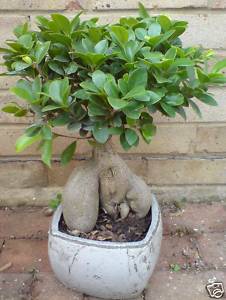Roses, gardening, lawn care
Following on from yesterday's Article by Brad Jalbert at www.rosemagazine.com, we conclude with the second and last part today. In this troubled World, I often think we have lost touch with Nature and that the Consumer Society has insulated us from Reality. It's a fact that most people wouldn't know how to grow food to keep their families alive in an emergency. Most people today are reliant on Supermarkets to provide their food, pre-wrapped and packaged, ready to go in the oven, or already cooked. Little do they realise that Supermarkets, by their very nature, carry only sufficient stocks to keep the shelves stacked, so as to enhance cash flow. The result is that we are all within 1 month of starving to death in the event of a Catastrophe.
How many people actually have reserves of food stocked up in their Larders? How many people could even light and heat their homes without electricity and gas supplies? How many people even know how to grow things other than weeds in their garden?
It's a sad indictment of modern day Society that all the hard won survival experience of our forefathers has, in the main, been lost.
God help us in the event of a real emergency. We are so cocooned from reality, from the World as it really is, that I fear for us all!
Enough already! Rant over for the day. Getting back to roses, here is the second part of the Article!
Step By Step Planting
1. Dig an appropriate sized hole for the root ball, loosening surrounding soil. Usually a 2ft by 2ft hole for large roses and a 1 foot hole for minis.
2. Add some compost or well rotted manure to the hole plus a handful of bone meal. Mix gently and taste ( just kidding). Spread the roots over this mixture positioning the crown at the soil level or slightly below, and refill around the roots with more of your good mixture. Firm the plant and water well. Water is really the secret in helping a rose or any plant get off to a good start in life. Remember to water a new plant often, especially if the weather turns hot.
Fertilizing
This is the really easy part of rose growing. The first and most important type of rose food is plain old water. A rose that is well watered throughout the summer will grow far better than one that's treated to loads of chemical rose foods but little water. I use organic fertilizer outside with great success. Seakelp is excellent as are fish fertilizers and Canola meal. Many people like the all purpose rose foods available in most garden centres. Try not to get to hung up on stuffing your rose plant full of rose foods, and apply only a small handful about every six weeks if you remember. Fertilizer should not be applied after July 15 , as the plants need to use up what's in the soil and 'harden up' for winter. If all of this sounds too confusing, just throw a handful down before and after the first bloom, and your sure to get pretty roses.
Pests & Diseases
The old saying "an ounce of prevention is worth a pound of cure" certainly holds true here. Planting a rose in good soil with plenty of sunshine and air circulation is your first and most important defense against insect and disease problems. Mildew and Blackspot are the two most troublesome problems but with a little effort can be easily controlled. If you don't want to spray fungicides at all, then be sure to plant disease- free roses like the Rugosas or one of the healthiest of the others. Strip off all the leaves before your rose begins to regrow in the spring and watch for any sign of trouble.
Most home gardeners can grow great roses without the use of insecticides. Aphids are easily washed off a plant or are soon eaten up by beneficial insects in a healthy garden. Other insects can be picked off or given the hose treatment. Spider mites are a real problem for people who spray often, but seldom bother the organic garden. When it comes to insects and disease, roses are truly highly over- rated, as many other types of plants from tomatoes to carrots have their troubles but we seem to demand perfection from our roses. Try not to be to concerned about the odd spoiled leaf but take reasonable precautions against bad outbreaks.
I have often wondered why people make such a fuss over growing roses and worry about the insects and diseases that could strike, and miss all the fun. I guess roses are just one of those plants that exude such majestic beauty, that we assume they must be difficult to cultivate. In my few short years of growing roses I have learned two things: some people just love complaining about roses, while others just love roses."
Terry Blackburn. Internet Marketing Consultant, living in South Shields in the North-East of England. Author and Producer of blog http://www.lawnsurgeon.blogspot.com Author of "Your Perfect Lawn," a 90 Page eBook devoted to Lawn Preparation, Lawn Care and Maintenance. Find it at http://www.lawnsurgeon.com
I would be very interested to have your comments on this Article.
Article Source: www.rosemagazine.com
roses,lawn care, gardening

No comments:
Post a Comment